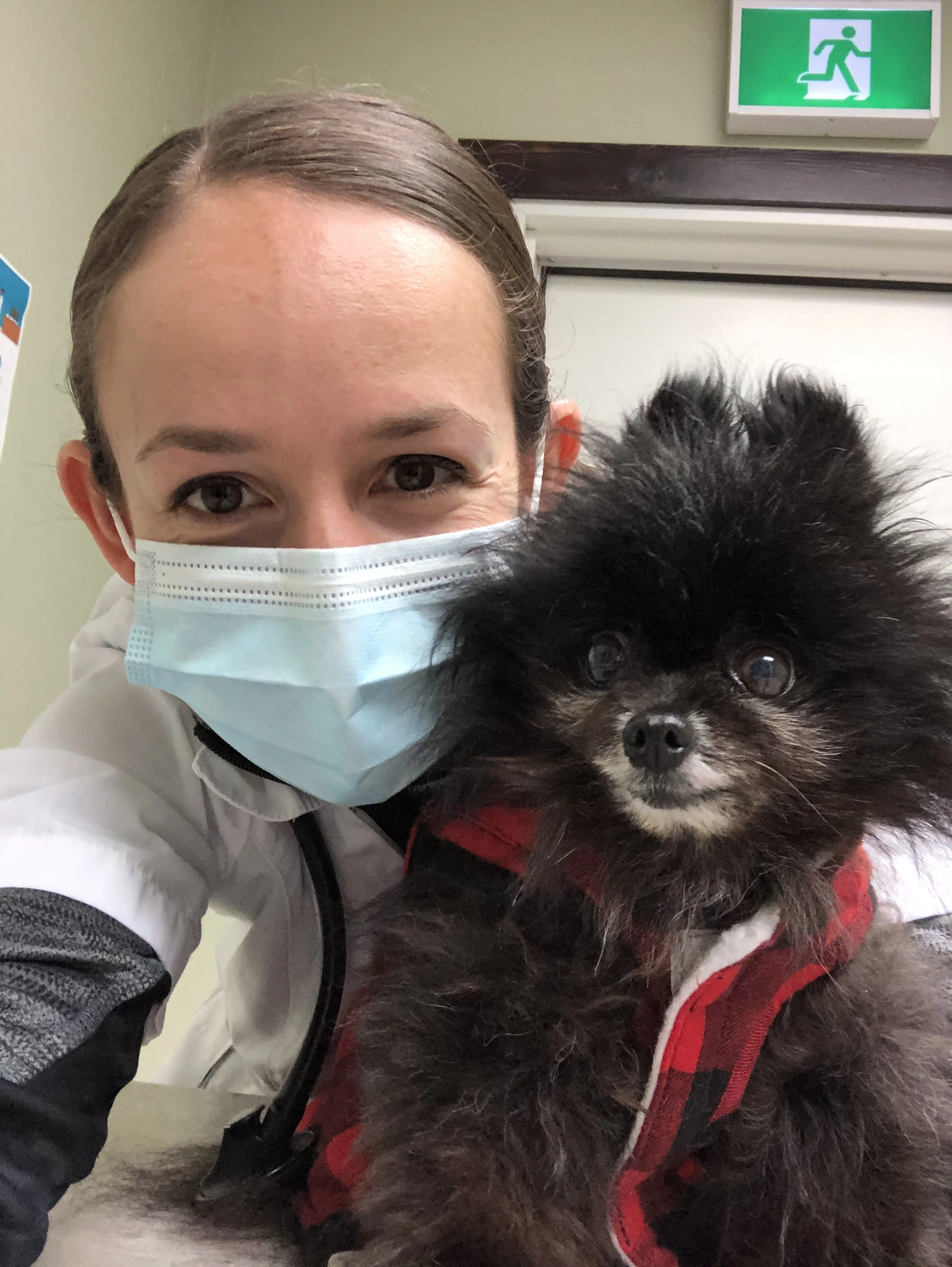How to Choose a Reputable Rescue
Tucker was adopted from the Saskatoon SPCA while I was still in vet school. He fully endorses my position as a board member for the Winnipeg Humane Society.
With the ever-expanding world of dog and cat rescue groups, choosing a reputable rescue can be challenging. It is not a decision we wish you to take lightly, especially when making decisions regarding the addition of a new family member to your home. Taking a moment to ask yourself a few key questions before moving ahead with a particular rescue, may ensure a smooth adoption process and a lifetime of success with your new dog or cat.
Does the rescue group have a strong working relationship with a veterinarian?
It is very important that the rescue group works closely with a veterinary clinic to ensure that their adoptees are thoroughly examined prior to being matched with their new home. In many cases, the past medical history of an animal is unknown, and so a keen and professional eye is necessary to ensure that a complete physical exam is completed. Potential health issues should be identified and prioritized, with a plan in place for long-term treatment if required. Adoptees should also receive appropriate preventative care in the form of vaccinations, deworming and nutritional advice.
Does the rescue group operate out of a brick and mortar location, or do they rely on foster care for pet placement?
Some larger rescues, such as the Winnipeg Humane Society (WHS) and Winnipeg Animal Services, operate out of a single location. The WHS even has their own in-house veterinary clinic with upwards of four staff veterinarians. Many rescues are smaller and rely on a network of foster homes to care for their adoptees. In many cases, this is just as good if not better than physical shelters. However, be sure to ask about their foster home protocols (how many foster pets per home; how regularly are the directors in touch with the foster parents; etc)
Does the adoption fee include spay/neuter services?
Spay and neuter surgery is of utmost importance. Not only does it prevent future unwanted animals, but it also prevents a list of life-threatening health issues that are directly related to patients that are not spayed or neutered. These issues include: life threatening infections (pyometra), increased risk for mammary cancer, prostate enlargement, prostate infections and perineal hernias. A responsible rescue will adopt animals that are already spayed/neutered, OR they will include a clear plan for when and where the surgery will take place post-adoption.
Are the dogs/cats fully vaccinated? Have they received internal parasite prevention and/or heartworm prevention?
All adoptable pets should be fully vaccinated with a minimum of their core vaccinations. If a dog or cat is too young to have been fully vaccinated, then a clear plan as to when the boosters will be administered should be included in the adoption process. They should have also received dewormer and treatment for ectoparasites (fleas/ticks) if regionally required. Always inquire about whether heartworm prevention has been administered, as this is an important part of keeping our pets healthy, especially in Manitoba.
Does the rescue have a board of directors?
A board of directors ensures a group of personally invested and accountable individuals. It allows for a group consensus on issues regarding adoptions, patient care, and rescue protocols.
Are rescue organizers timely in their response to inquiries? Are they available by phone and email?
In the digital age, sometimes it is important to be able to personally speak with a rescue director to ensure that you are comfortable with the rescue protocols and adoption protocols. Many people have unfortunately fallen prey to online scams that have asked for deposits on adoptees that don’t actually exist. An open line of communication between rescue and potential adopters is key.
Is there an adoption interview process?
This may include a phone interview, application process and perhaps even a home visit. This indicates that the rescue if fully invested in making sure their adoptees find dedicated and suitable homes.
Are past medical records available prior to, and upon adoption?
This is very important with regards to making an informed decision when adopting a pet with past medical concerns. Medical records should be made available and transferred to your veterinarian to guarantee that future care and management is complete and seamless.
I hope that some of these suggestions may help guide you towards your new best friend in the future. And remember, if in doubt, always reach out to your family veterinarian. We are more than happy to advise you on whether a particular pet may be the right one for you and your family.
Ellie’s official title is Personal Assistant to one of the board members of Cupcakes Pommy and Friends Rescue.

